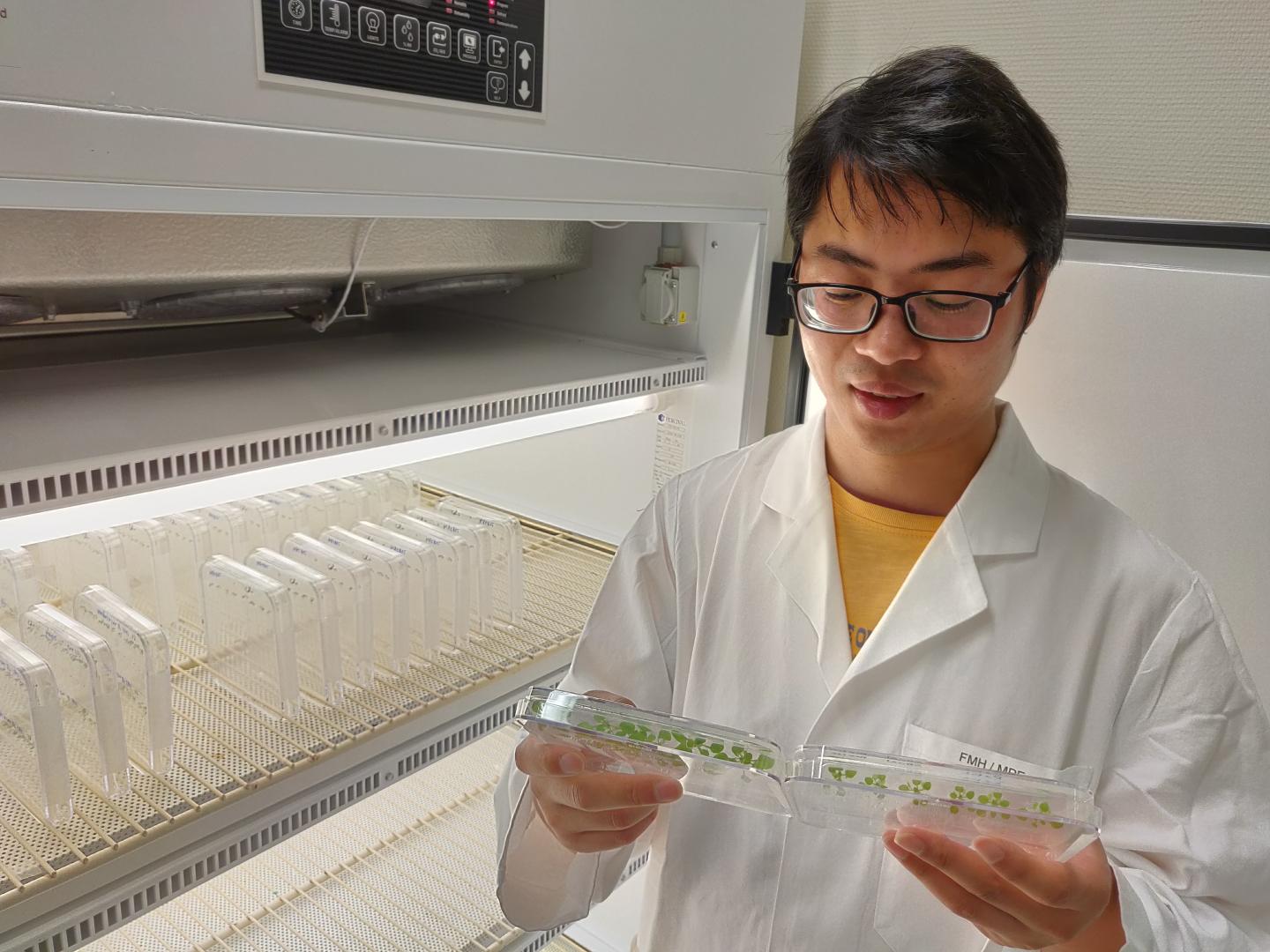How brassinosteroid signaling makes roots grow longer under nitrogen deficiency

Credit: Dr. Ricardo Giehl/IPK
As sessile organisms, plants rely on their ability to adapt the development and growth of their roots in response to changing nutrient conditions. One such response, known to be displayed by plants grown in low nitrogen conditions, is the elongation of primary and lateral roots to explore the surrounding soil. This adaption to the lack of the essential element nitrogen is of particular interest, as it reflects a “foraging strategy”, by which the root system can exploit nutrients from a larger soil volume. Until recently, this was the least understood nitrogen-dependent root response. Scientists from the IPK in Gatersleben have now identified the hormone pathway regulating root foraging under low nitrogen conditions and a signalling component that modulates the intensity of this response. These findings open up the possibility of breeding crops with root systems enabling more efficient nitrogen uptake.
The amount and form of plant-available nutrients fluctuates in soils, for example in dependence of soil moisture or microbial transformation processes of nutrients. Plants sense changes in their nutritional status and respond to these by tailoring the growth and development of their roots. These responses express in an altered degree of branching, extension, placement, and growth direction of individual parts of the root system. Nitrogen is an essential mineral element and nutrient for plants. When nitrogen availability is low, plant roots preferentially grow into nitrogen-enriched soil patches by locally expanding their lateral roots. As soon as plants run into nitrogen deficiency, they immediately induce a foraging response, in which roots elongate to explore a larger soil volume. The regulatory mechanisms underlying this nitrogen-dependent root response were previously unknown. Researchers from the IPK in Gatersleben have now discovered that a class of steroid hormones modulate root foraging under low nitrogen conditions and thereby determine the extent of this response. The findings were published in Nature Communications.
In this study, scientists from the research group “Molecular Plant Nutrition”, led by Prof. N. von Wirén, assessed the natural variation in root growth under mild nitrogen deficiency in 200 accessions of the model plant Arabidopsis thaliana. Employing genome-wide association mapping with support of the “Heterosis” group led by Prof. T. Altmann, the researchers were able to show that BSK3, a brassinosteroid signaling kinase, is modulating the extent of root elongation under low nitrogen. Further, they demonstrated that mild nitrogen deficiency activates brassinosteroid signaling by upregulating the transcript levels of the brassinosteroid co-receptor BAK1 that enhances the sensitivity of root cells to brassinosteroids.
The results reveal a previously unknown role of brassinosteroid-type plant hormones in shaping root systems in response to nutrient deficiencies. This novel insight allows a deeper understanding of the regulation behind adaptive responses of plants to changes in nitrogen availability, but also provides a perspective for practical application in agriculture.
As a “major driver of plant growth”, nitrogen is an indispensable element in agricultural plant production. However, nitrogen fertilizers must be used with care, as a surplus of nitrogen in the soil can have a detrimental impact on the environment, for example by leading to soil acidification or to eutrophication of waterbodies. Therefore, the breeding of crops, which better exploit the soil for nutrients, is highly desirable as they may require less fertilizer. The researchers of this study see their discovery of the regulatory role of BSK3 as novel opportunity to approach this matter. By exploiting naturally occurring allelic versions of BSK3 or by the generation of de-novo variants by precise genome editing, plant breeders could develop new crop cultivars with larger root systems, giving crop species the sought-after mechanisms to perform better at low nitrogen fertilizer inputs.
###
Media Contact
Dr. Nicolaus von Wirén
[email protected]
Related Journal Article
http://dx.




